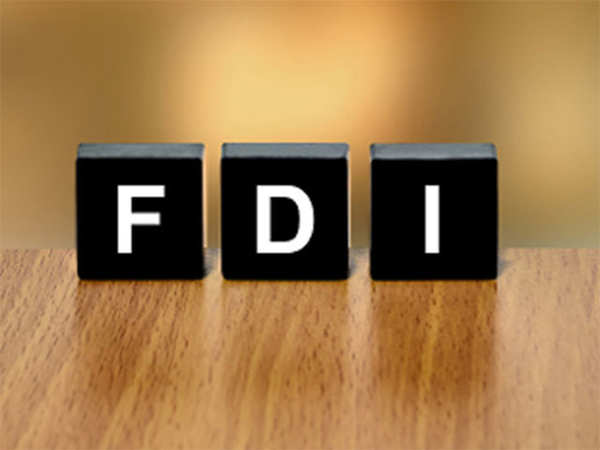They fell furthest in rich countries, but the poorest may suffer most
THE COVID-19 pandemic has taken a heavy toll on global economic activity. Foreign direct investment (FDI) is no exception. Last year flows of FDI dropped by one-third from $1.5trn in 2019 to $1trn, the lowest since 2005, according to an annual report by the United Nations Conference on Trade and Development (UNCTAD) published on June 21st. Inflows to rich countries fell faster than those to developing ones—by 58% against just 8%. Developing countries’ share of the total thus climbed to two-thirds, from just under half in 2019 (see chart). UNCTAD expects total flows to bottom out this year; by next year, if they are at the upper end of its projections, they may get back to where they were in 2019.
The shrinkage of FDI into rich countries, UNCTAD notes, was aggravated by a drop in “conduit” flows (ie, those routed through one country, such as the Netherlands or Switzerland, on the way to another), intra-firm flows and corporate restructuring. Globally, inflows stripped of those elements were down by about 25%. Nevertheless, mergers and acquisitions, the biggest component of rich countries’ inflows, fell by 11%; “greenfield” investments in new projects were down by 16% and project finance by 28%. Flows into America fell by 40%, largely because of a reduction in reinvestment of earnings by foreign firms’ American affiliates, but the country remained the biggest recipient of FDI, with $156bn, just ahead of China, at $149bn.
Only 57 percent of investors are optimistic about the three-year global economic outlook, which is much lower than last year’s 72 percent (prior to and at the onset of the pandemic) (see figure 1). In addition to this fall in confidence, most of the overall scores for the top-25 economies have fallen relative to previous years. Results also show that fewer investors intend to invest across all types of markets compared with last year. In fact, investors pointed to the macroeconomic environment as the most prominent factor in explaining why direct investments might decrease.
The silver lining is an enduring investor perception that FDI will drive corporate profitability and competitiveness over the next three years. This suggests that, despite the economic and financial shockwaves of the pandemic, investors remain convinced about the benefits of FDI. And despite the increased investor caution this year, the FDI plunge in 2020 will likely not become a permanent feature of the global economy.

Developed markets maintain their highest share ever—for the third year in a row
The United States once again takes the top ranking—for the ninth consecutive year. Canada remains second, and Germany maintains its third spot. And the United Kingdom rejoins the top five after ranking sixth last year. France falls modestly—to sixth place after holding the fifth spot for three years in a row, a position now taken by Japan, which dropped from fourth last year. It is noteworthy that the top 10 countries on the Index remain unchanged from 2020, apart from Spain joining the list and China falling out.
The new findings show a clear predisposition for larger, more advanced markets insofar as the same six economies were at the top of the rankings last year (see figure 2). In fact, this year marks the third time in the 23-year history of the Index—and the third consecutive year—in which the top five spots are all held by developed economies. This continued strong showing of advanced economies likely stems from conducive regulatory environments coupled with skilled workforces, advanced tech infrastructure, and economic stability. When it comes to pinpointing the factors that are most important for investment decisions, respondents indicated taxation as the top consideration, but also important are technological and innovation capabilities as well as R&D capabilities—areas of strong competitive advantage for most developed economies.

The weak showing of emerging markets persists
The same reasons that explain the dominance of developed markets—investor emphasis on technology, governance, and macroeconomic stability—also explain why few developing economies are on this year’s list. The three exceptions are China, the UAE, and Brazil.
While China remains the highest-ranked emerging market on the Index—a distinction it has held since 1999—the country slips this year from eighth to 12th. This result is counterintuitive following China’s swift economic recovery last year, long before other economies began to regain momentum, but may reflect concern over persistent US–China trade tensions and a more general corporate rethink of international supply chains.
As investors increasingly rely on data and the cross-border flow of data to support their operations, many cite burgeoning data regulations as impacting their foreign direct investments
Investors say data is integral to generating revenue, with most stating that a large portion of their turnover is generated through data. But they are also cognizant of growing data regulations and the costs that they incur. A majority report that cross-border data restrictions have a moderate to significant impact on FDI, while complying with data regulations already comes with a heavy price tag (see figure 3). Further, many are concerned about how data nationalism—moves by nation–states to ensure control over data—might affect their investments over the next three years.
Many investors see data protection regulations and the operational costs of protecting data as imposing costs on their FDI

As a global consulting partnership in more than 40 countries, our people make us who we are. We’re individuals who take as much joy from those we work with as the work itself. Driven to be the difference between a big idea and making it happen, we help our clients break through.
https://www.economist.com/graphic-detail/2021/06/21/the-pandemic-cut-annual-fdi-flows-by-one-third
https://www.kearney.com/foreign-direct-investment-confidence-index





